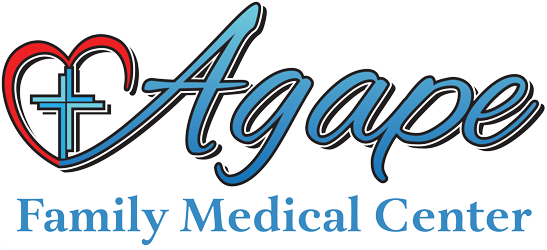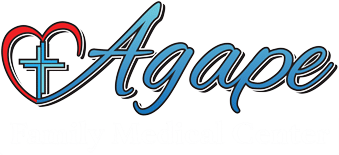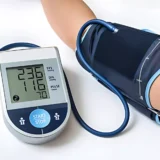When it comes to healthcare, having a trusted primary care doctor is essential for maintaining overall well-being. Internal medicine specialists play a crucial role in this by providing comprehensive care tailored to each patient’s unique needs. At Agape Family Medicine, our expertise in internal medicine ensures that you receive specialized care and personalized solutions. In this blog, we’ll explore the importance of internal medicine and how our primary care doctors near you can enhance your health journey.
Understanding Internal Medicine
Internal medicine is a medical specialty focused on the prevention, diagnosis, and treatment of adult diseases. Internal medicine physicians, also known as internists, are trained to handle a wide range of health issues, from common illnesses to complex medical conditions. Their extensive knowledge allows them to provide comprehensive care that addresses multiple aspects of a patient’s health.
Key Areas of Internal Medicine
Internists are equipped to manage various health concerns through specialized care in the following areas:
1. Chronic Disease Management
Chronic diseases such as diabetes, hypertension, and heart disease require ongoing management and monitoring. Internal medicine specialists are skilled in developing personalized treatment plans to help patients manage their conditions effectively, improve their quality of life, and prevent complications.
2. Preventive Care
Preventive care is a cornerstone of internal medicine. Internists focus on early detection and prevention of diseases through regular check-ups, screenings, and vaccinations. By identifying risk factors early, they can implement strategies to prevent the onset of chronic conditions.
3. Acute Care
Internal medicine physicians are adept at diagnosing and treating acute illnesses and infections. From respiratory infections to gastrointestinal issues, they provide prompt and effective care to address sudden health concerns.
4. Complex Diagnostic Cases
Internists excel in managing complex diagnostic cases that involve multiple symptoms and conditions. Their ability to integrate information from various sources and perform thorough evaluations ensures accurate diagnoses and effective treatment plans.
5. Coordination of Care
For patients with multiple health issues, coordinating care among various specialists can be challenging. Internal medicine specialists act as primary care providers, overseeing and coordinating all aspects of a patient’s healthcare to ensure continuity and comprehensive management.
Personalized Solutions for Your Health
At Agape Family Medicine, we understand that each patient is unique. Our approach to internal medicine is centered on providing personalized solutions tailored to individual needs. Here’s how our primary care doctors near you can enhance your healthcare experience:
1. Comprehensive Health Assessments
Our internists conduct thorough health assessments to gain a deep understanding of your medical history, lifestyle, and current health status. This holistic approach allows us to create personalized care plans that address your specific needs.
2. Patient-Centered Care
We believe in a patient-centered approach, where you are an active participant in your healthcare journey. Our internists take the time to listen to your concerns, answer your questions, and involve you in decision-making processes. This collaborative relationship ensures that your care aligns with your preferences and goals.
3. Advanced Diagnostic Tools
To provide accurate diagnoses and effective treatments, we utilize advanced diagnostic tools and technologies. From laboratory tests to imaging studies, our internists have access to state-of-the-art resources that enhance the precision of our care.
4. Customized Treatment Plans
No two patients are alike, and neither are their treatment plans. Our internists develop customized treatment plans that consider your unique health needs, preferences, and lifestyle. Whether you need medication management, lifestyle modifications, or specialist referrals, we tailor our approach to achieve the best possible outcomes.
5. Continuity of Care
Building long-term relationships with our patients is a priority at Agape Family Medicine. Our internists provide continuity of care by maintaining detailed health records, monitoring your progress, and adjusting treatment plans as needed. This ongoing support ensures that you receive consistent, high-quality care throughout your health journey.
Finding Primary Care Doctors Near Me
If you’re searching for reliable and experienced primary care doctors near you, look no further than Agape Family Medicine. Our team of skilled internal medicine specialists is dedicated to providing specialized care and personalized solutions that meet your unique health needs.
At Agape Family Medicine, we are committed to helping you achieve optimal health through comprehensive and compassionate care. Contact us today to schedule an appointment and experience the difference that expert internal medicine care can make in your life.








